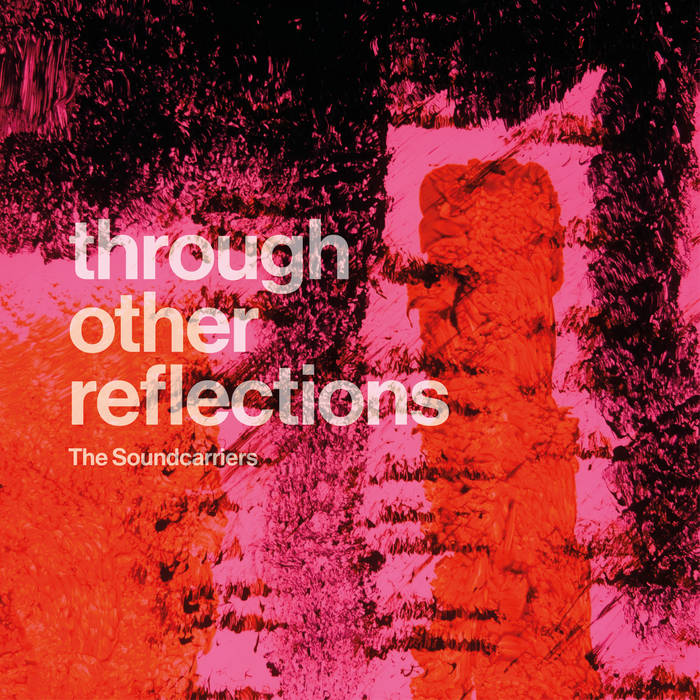The psychoanalyst Carl Jung recognised modern lifestyles had alienated people from the “dark, maternal, earthy ground of our being”. He was describing the ancient connection with the earth that we can experience in the garden. Plants put us in touch with the cycle of life, where destruction and decay are followed by regrowth and renewal. In working with nature’s powers of transformation, we can find ourselves feeling quietly transformed too. The essence of the Garden is change; nothing stays the same for long.
Whimsical connotations of the British countryside have always been a part of our collective unconscious, no more so than in the 1960s, when the British psychedelic explosion utilised the garden as a playground prop, emblematic of drug-induced mysticism but also a cognisance of the healing power of nature. Psychedelic music as a means to process trauma isn’t merely a 60s phenomena, though the British strain was preoccupied with the innocence of childhood, perhaps as a re-instigation of a paradise lost. Post-war Britain was an industrial bombsite of twisted iron and concrete. When the environment before you is so nightmarish, the imagination is one’s sanctuary.
In his book Electric Eden, Rob Young writes: “The ‘Visionary Music’ invoked in this book’s title refers to any music that contributes to this sensation of travel between time zones, of retreat to a secret garden, in order to draw strength and inspiration for facing the future.” Nottingham’s The Soundcarriers, consisting of Leonore Wheatley (International Teachers of Pop, Whyte Horses, Co-Pilot), Adam Cann, Dorian Conway and Paul Isherwood, draw intercontinental inspiration from The United States of America’s synthedelia and Can’s motorik Kosmische, filtered through a decidedly twenty-first century lens. But the playful essence is indebted to the fantastical characteristics of British psychedelia and folk music: think Mark Fry, early Pink floyd, or contemporarily, Cate Le Bon and, yes, Broadcast. It’s a Lewis Carroll excavation of childlike wonder that pertains to a specific type of British romanticism.
While Blakian comparisons were slightly tarnished with the release of U2’s Songs of Innocence, there’s room to compare the emotional textures of Co-Pilot’s debut album and The Soundcarriers’ fifth LP. It’s a trope of seasonal change, with the constant flux of life pouring from the same imaginative well. In the correct hands, albums being released so close to one another can yield masterpieces of binary energies. Duel works suggest division but in actuality, they are two sides of the same coin – siblings of sorts. Though disparate, there’s a tangible sense that they exist in the same realm: the groove-oriented chamber pop of Through Other Reflections is an emotional pivot, sounding like the tougher, older sister to the electro futurism of Co-Pilot’s Rotate.
The pop hooks in contrast to their previous two albums are more subliminal. The melodies don’t always go in places you expect, but this music is best left to stew in the background before the magic manifests. It’s planetary and exploratory, outside of this world while comfortably inhabiting it. ‘Already Over’ is a poppier deviation with a kitschy ye ye bent – a vision of Austin Powers if directed by Sophia Coppola – while ‘The Return’ is a beatific nod to flower power via Italian film music (think Dario Argento and Gothic Romanticism) and Nico’s Desertshore.
Elsewhere, ‘What We Found’ could be a North Westerly classic, the cooler cousin to the Stone Roses’ distinctly Lancastrian brand of feather-light psychedelia. ‘Feel The Way’ elicits the New Age spirituality of Alice Coltrane and the Eastern mysticism of late period The Beatles, tempered by the instrumental ‘Sonya’s Lament’ – a classic mid-album motif that stops for breath following a rapturous call for collective healing.
The space around ‘Behind the Fire’ feels Jonestown Massacre-esque with its 60s garage sheen, while the witchy ‘Always’ is folk horror in technicolour and high contrast – the musical parallel to Black Narcissus. Sleepy Broadcast drums are abundant, particularly on the loungey ‘Comet’, a cosmic assimilation of bossa nova – if the girl was from the Suburbs of Manchester and not Ipanema.
Treading a more leisurely path without minimising impact, The Soundcarriers’ strong sense of defiance amid themes of melancholic optimism and urban disillusionment extracts an astonishing amount of emotional specificity in the instrumentation, cinematic flourishes and melodic nuances. In the context of national unrest, as well as the private struggles of the people involved in this project, The Soundcarriers demonstrate with Through Other Reflections that the keys to an Electric Eden couldn’t be in safer hands.


